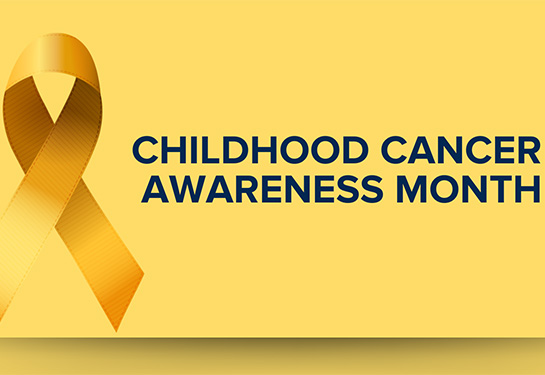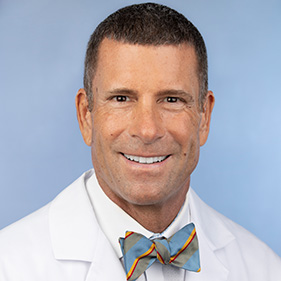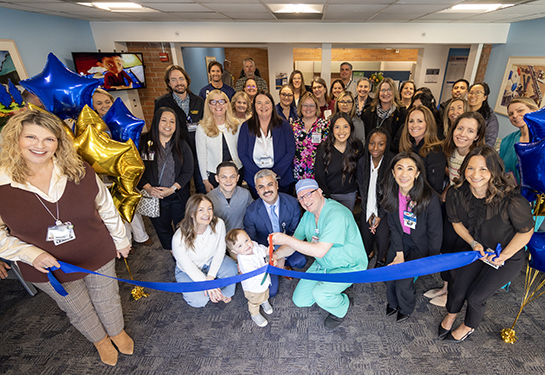Orthopaedic Surgery supports pediatric patients through cancer diagnosis, treatment
Cancer is the leading cause of death by disease among children in the United States and can occur in any part of the body. It begins with genetic changes in cells, forming tumors that can spread and cause harm if not treated.
The pediatric orthopaedic team at UC Davis Comprehensive Cancer Center and UC Davis Department of Orthopaedics treats all types of bone, joint or muscle conditions in children. Pediatric oncology providers diagnose and treat a wide range of pediatric cancer and blood disorders for children, teens and young adults.
Patients receiving treatment at the cancer center have access to leading-edge clinical trials for new therapies and a wide range of supportive programs during their treatment. The center is known for its expertise in managing the long-term effects of treatment on survivors of childhood cancers.
The cancer center received national recognition for its outstanding surgical oncology care and was honored as an American College of Surgeons (ACS) Surgical Quality Partner. The award is given to cancer programs that excel in quality of care, preventing complications, saving lives and reducing costs.
The most common types of childhood cancer are:
- Osteosarcoma, an aggressive bone cancer
- Ewing’s sarcoma, a rare, malignant bone or soft tissue tumor
- Rhabdomyosarcoma, the most common type of soft tissue sarcoma in children, with the cancerous cells forming in muscle tissue
The warning signs to watch for
Pediatric sarcoma often goes undetected in its early stages.
Some potential warning signs or symptoms of childhood cancer that parents should be aware of:
- Growing pains
- Unexplained pain or weight loss
- Lumps, bumps, or persistent pain
- Swelling or bruising
- Constant fatigue or fevers
Some of these symptoms can be dismissed, leading to delayed diagnoses. It’s crucial for any concerning signs to be evaluated promptly by a pediatrician or orthopaedist. Early detection is key to improving treatment outcomes for young cancer patients.
Traditionally, bone sarcomas in children often led to amputation. However, thanks to advancing technology and chemotherapy, new techniques have been developed to preserve the extremity and reconstruct it through various means. This includes the use of metal implants and innovative methods for bone "regrowth" following tumor removal.
R. Lor Randall, a pediatric musculoskeletal surgical oncologist at UC Davis Health, is an internationally recognized sarcoma surgeon, educator and researcher. He also serves as the chair of the Department of Orthopaedic Surgery and specializes in treating rare cancers of connective tissue in both adults and children.
“The greatest professional privilege of my life is to dedicate my efforts, time, and soul to care for kids and families in this struggle,” said Randall. He recently performed a rare procedure called clavicula pro humero, using a patient’s collarbone to create a new upper arm for the patient instead of amputation.
The greatest professional privilege of my life is to dedicate my efforts, time, and soul to care for kids and families in this struggle.”—R. Lor Randall
Supporting children and families with cancer
Many researchers at UC Davis Comprehensive Cancer Center work closely with oncologists to expedite the application of new laboratory discoveries in clinical trials and implement them in patient care. Some investigators at UC Davis are involved in collaborative research aimed at studying and understanding tumors.
"We understand the challenges faced by children and their families when dealing with cancer,” said surgical oncologist Danielle Brown, who recently joined the team. Brown is dedicated to diagnosing and treating benign and malignant conditions of the musculoskeletal system, with a focus on pediatric patients with bone and soft tissue tumors. “Supporting these young patients and their families through such a physically and mentally challenging time is crucial. Even after treatment, these patients require ongoing surveillance for years, which can be psychologically challenging.”
Related links





